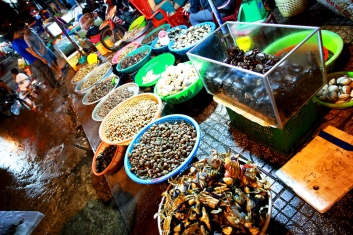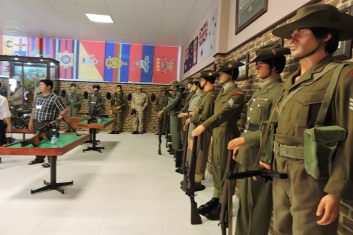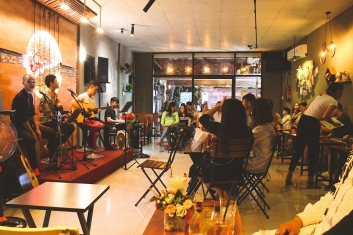![]() Vietnam Travel Guide
Vietnam Travel Guide
Hanoi Old Quarter – 36 Streets
Hanoi Old Quarter is referred to as 36 streets of Hanoi with busy streets: Hang Bai, Hang Dao, Hang Ngang, Hang Ma. Each street is a place to keep historical memories of the capital, also Like keeping a memory of those who lived together and built the capital. Over the years, Hanoi’s old quarter has not been as intact as it used to be, but this is still one of the best destination in Vietnam to visit the capital of the country to see the remains of an old Hanoi. You can easily to find a trip going around the Old quarter when you get to any Tours in Vietnam.
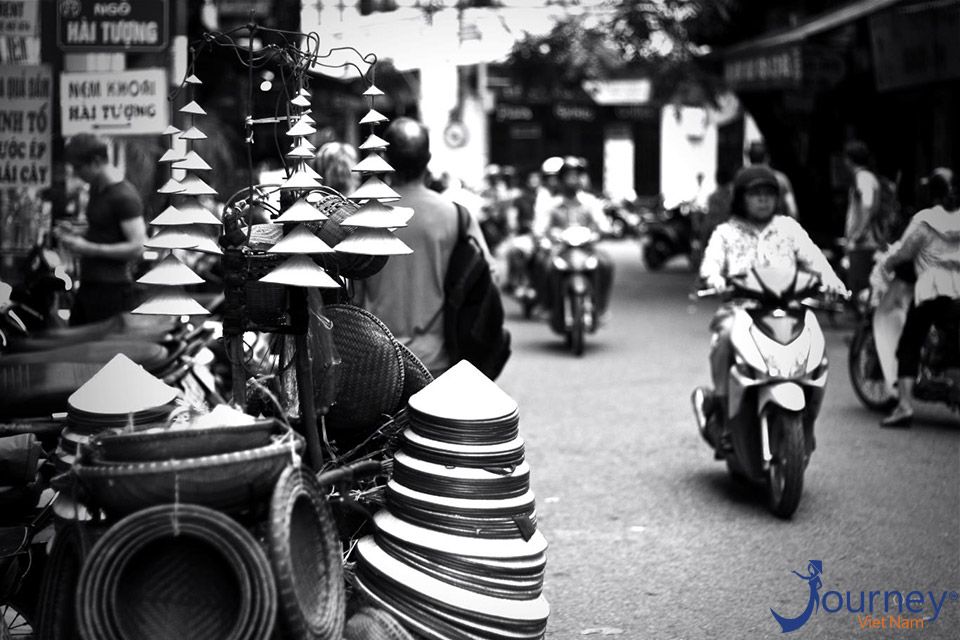
This is a common name for a long-established urban area, dating from the Ly dynasty of Hanoi, east of the Thang Long royal citadel, to the Red River. This urban area focuses on small-scale industrial and commercial activities, forming the characteristic streets. Craftsmen from the villages around Thang Long gathered here, focusing on each area of his profession. The merchant ships can exchange through each street, making the old town at that time trading business grows extremely. The main selling products of each street become street names with the word “Hang” located at the top.
Discover the Hanoi old quarter through 36 streets of Hanoi
For each visitor to Vietnam, the old quarter has a different form, a different soul. Nowadays, we can see the streets still retaining traditional products such as from the beginning Hang Ma, specializing in the trading of gold and silver items for worship, Hang Bac still sell gold and silver. However, over time, there are jobs that have disappeared, there are also new occupations that make the streets no longer business the same name of the street.
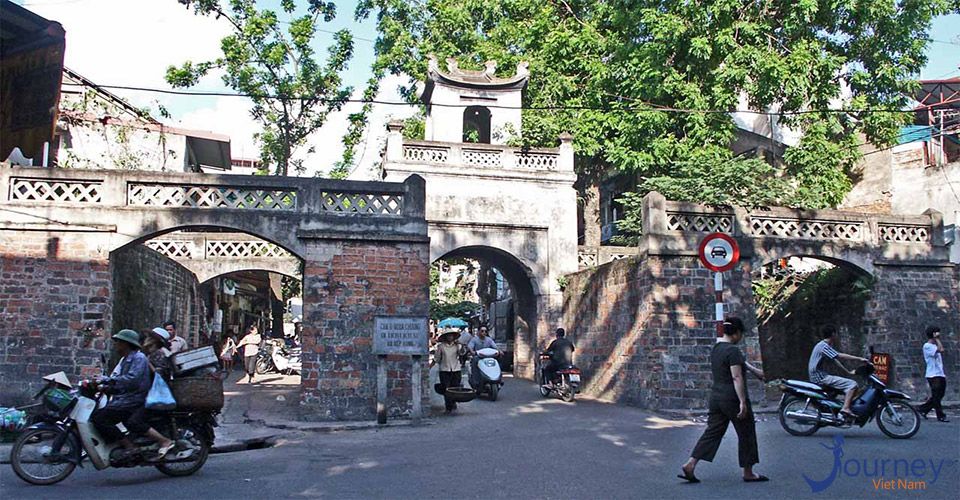
Many other streets are also worth a visit when coming to the old quarter such as Hang Gai with book shops, bookstores, book printing. There are many streets in the old quarter mainly open restaurants, hotels, shops to serve tourists here. For example, BBQ pork with vermicelli is selling in Hang Manh street, Mixed fruits in ToTich Street, Fresh spring rolls in Ngu Xa Street, etc.
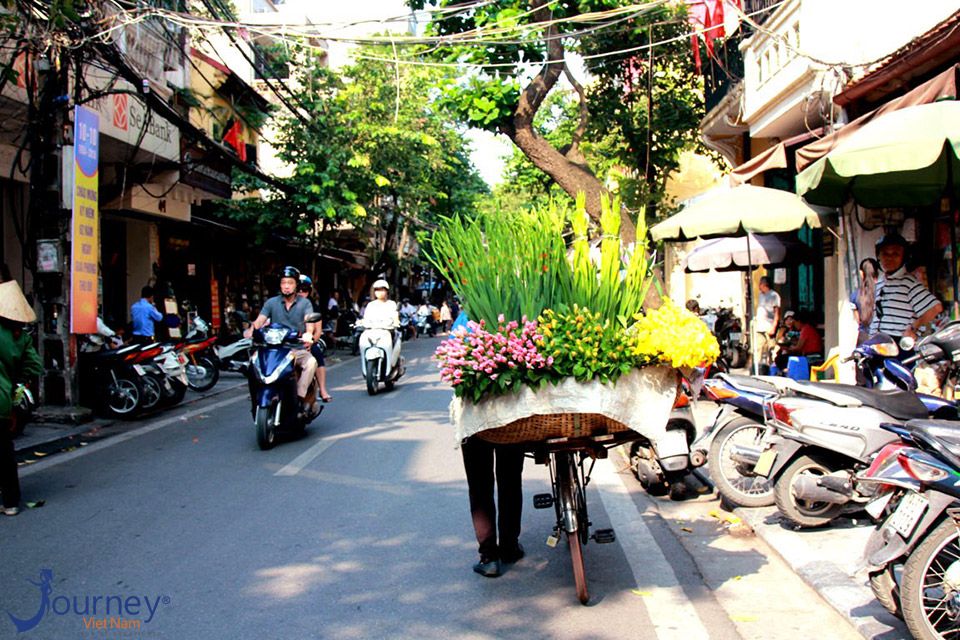
Although the streets of Hanoi’s Old Quarter have not been sold fully as before, they still retain the distinctive features of Hanoi’s Old Quarter.
Ancient architecture is retained
Go through the old streets, visitors will see the houses here are built in the style of pipe house, roof tile tilt, the front is the small business shop. These pipes were mainly built in the early twentieth century, at the beginning of the old quarter only the bamboos booths, then the cabin with bright red roof tiles appear, the last is the tube house. But if you have the opportunity to visit the old houses, you will find inside the houses are narrow paths or walls are still old tiles in the time stamp.
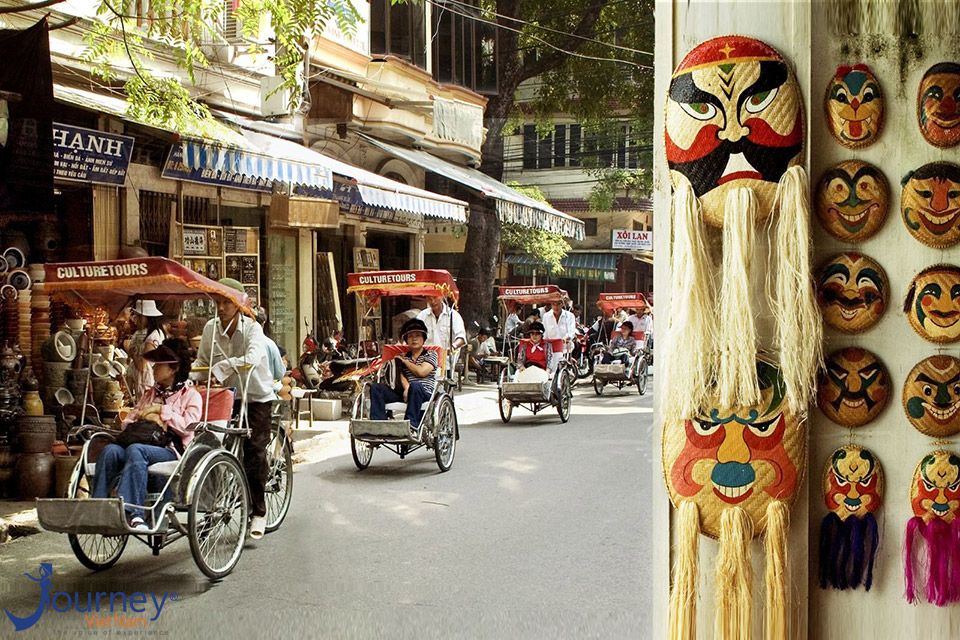
When you come here, you can not miss visiting some temples and pagodas such as Ma May Temple, Ba Chua Temple, Cau Dong Pagoda, Kim Co Pagoda. In addition, visitors can visit Quan Chuong Gate. The famous surviving, located at the top of Hang Chieu Street, near the Chuong Duong Bridge or Dong Xuan Market, exist hundreds of years since the feudal Nguyen.
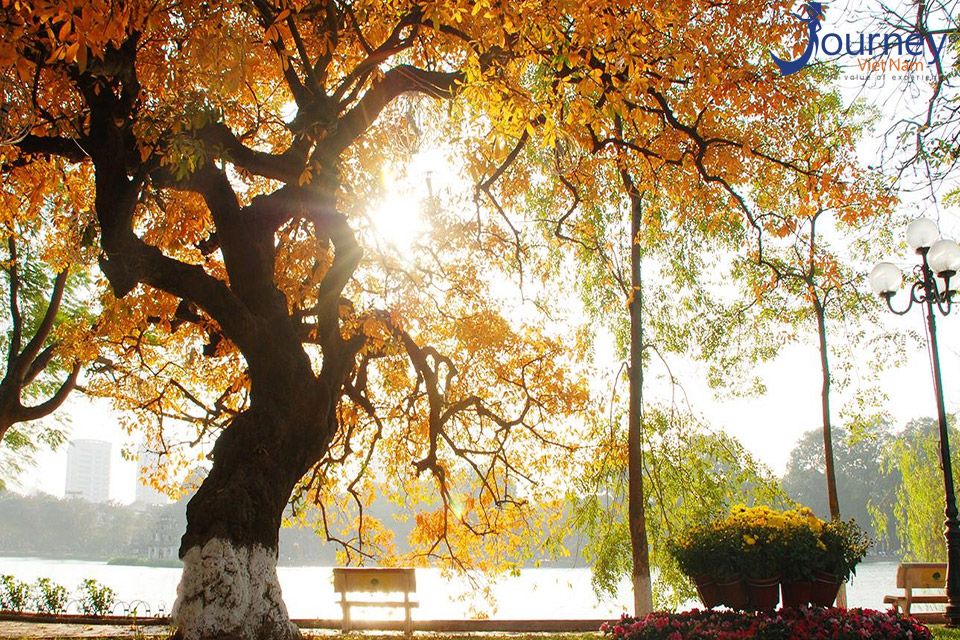
For those who like to explore the culture, as well as history, in addition to Hanoi old quarter can go to Hoi An to participate in the Eco tour in Hoi An, together explore the city to see the special of each different place.
Arrived in the capital, definitely, have to visit Hanoi’s Old Quarter. A historical monument worth to be cherished by the people and continue to develop the traditional trades of the nation. More than that, this is also a place to visit, even the busiest will be the quiet, quiet atmosphere of the old town makes the mind calm and gentle.
Copyright © 2016 Journey Vietnam.


